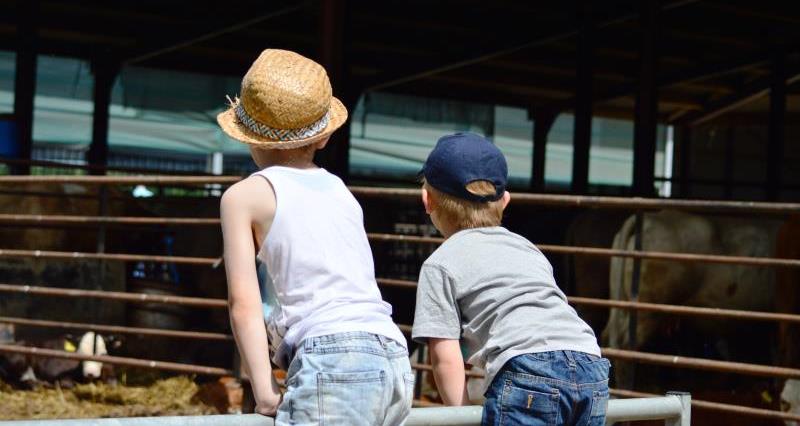Onsite vehicles
Any visitors to farm must be kept apart from moving vehicles. The best way to do this is to delegate specific separate areas for people and vehicles, ensuring there are physical barriers to between areas and clear signage.
Other measures you may want to consider include:
- Avoiding vehicles reversing on site when there are visitors present.
- Using a one-way system for traffic.
- Using mirrors for blind corners.
- Enforcing a maximum speed limit.
Managing the risk of disease
All animals naturally carry a range of microorganisms, some of which can be transmitted to humans and may cause ill health. The microorganisms can be particularly severe in young children. You must take action to manage these risks.
Key actions include:
- Ensuring animal contact is supervised or controlled.
- Maintain good hand washing facilities.
- Do not allow pregnant women to come into contact with pregnant ewes or lambs.
- Remove animal faeces and dirty bedding from visitor areas to reduce the risk of contamination.
- Regularly clean and disinfect animal areas.
The NFU and partner stakeholders have revised an industry code of practice. The guidance contains sensible and proportionate advice on infection control, such as having an appropriate layout and hand washing facilities.
Find out more at: Visitmyfarm.org | The Latest Industry Code of Practice
Training and accreditation
If you are looking for training and accreditation for your farm, you can investigate the various training routes offered by LEAF Education. These options include seminars and workshops, an accredited training scheme and bespoke training sessions for individual farms.
LEAF facilitate the CEVAS (Countryside Educational Visits Accreditation Scheme), which is a training scheme for farmers that consists of two parts:
- the accreditation of the staff involved in the visit
- the accreditation of the premises being suitable to host school visits.
Although geared towards school visits, CEVAS training provides a valuable basis and accreditation for all farm visits.
Upon successfully completing the training, you will receive a qualification from the Open College Network. The Access to Farms Partnership will issue a logo and certificate of achievement to use for promotional purposes.
Successful completion of CEVAS training also earns you CPD points with BASIS and Dairy Pro.
Further details of the scheme, including a calendar of course can be found at: Visitmyfarm.org | Courses | Access To Farms
Risk assessment
The Access to Farms Partnership, supported by the NFU have created a comprehensive checklist that can be used to inform your risk assessment for farm visits.
Download the checklist at: Visitmyfarm.org | Risk Management Tool For Farm Events
